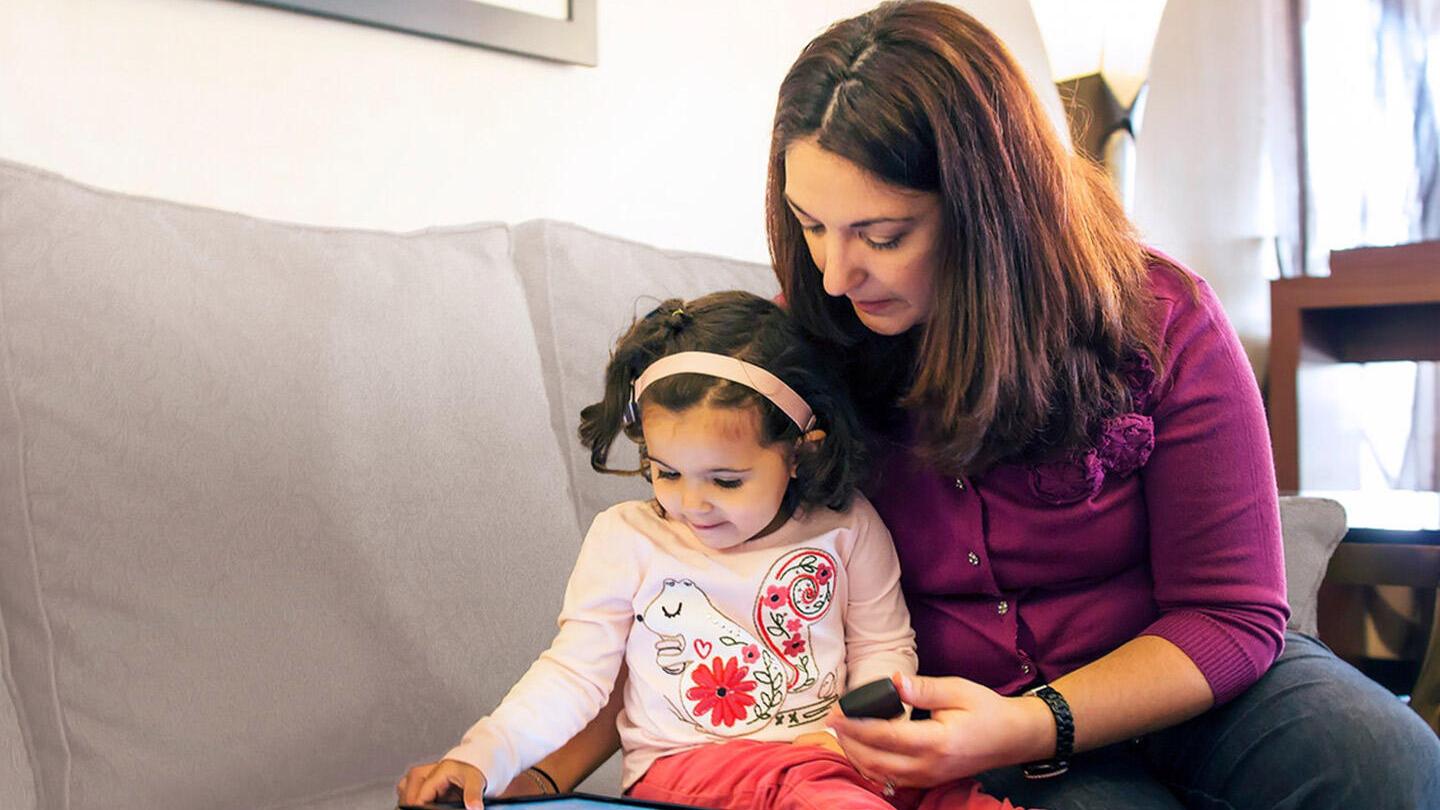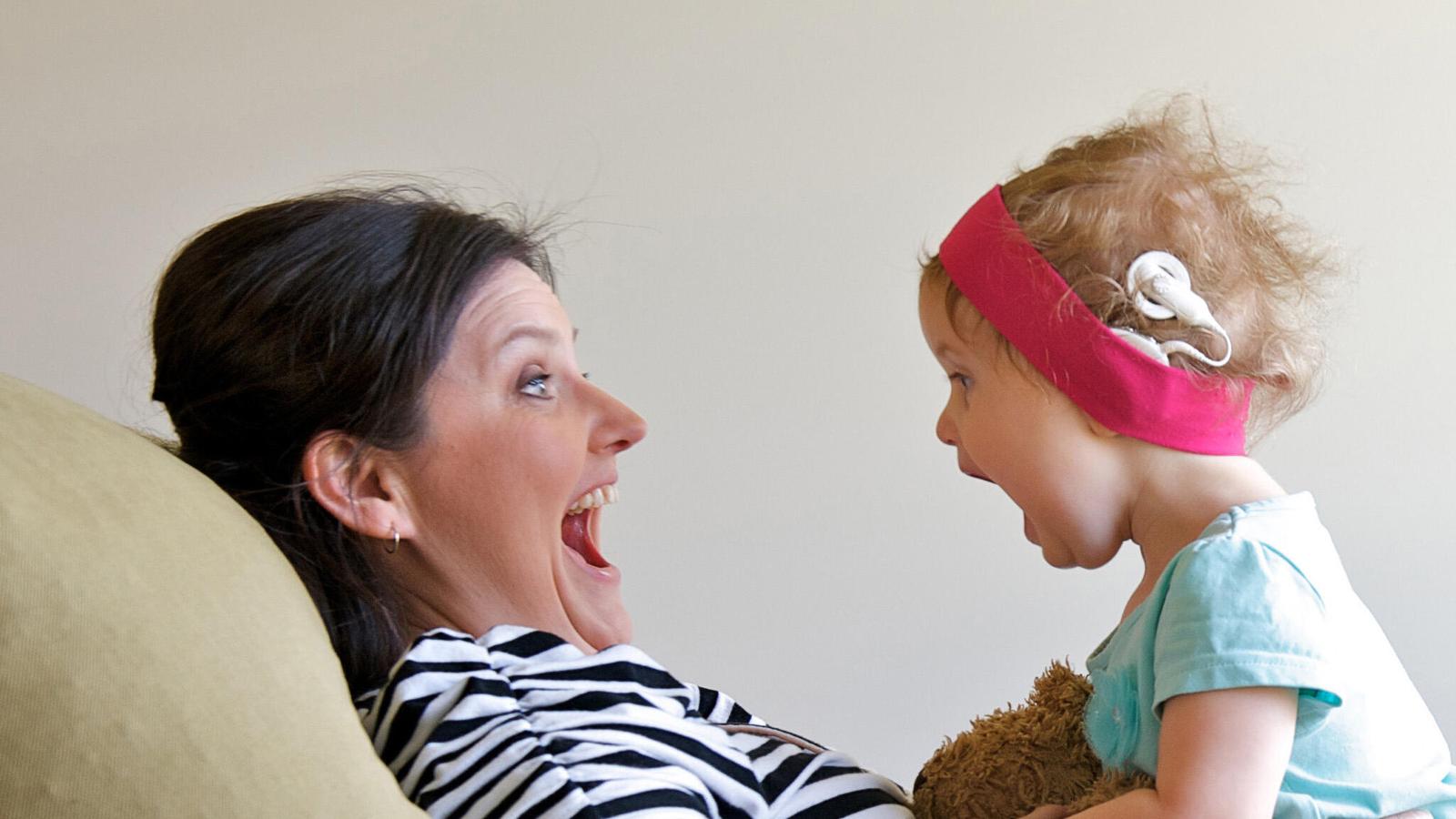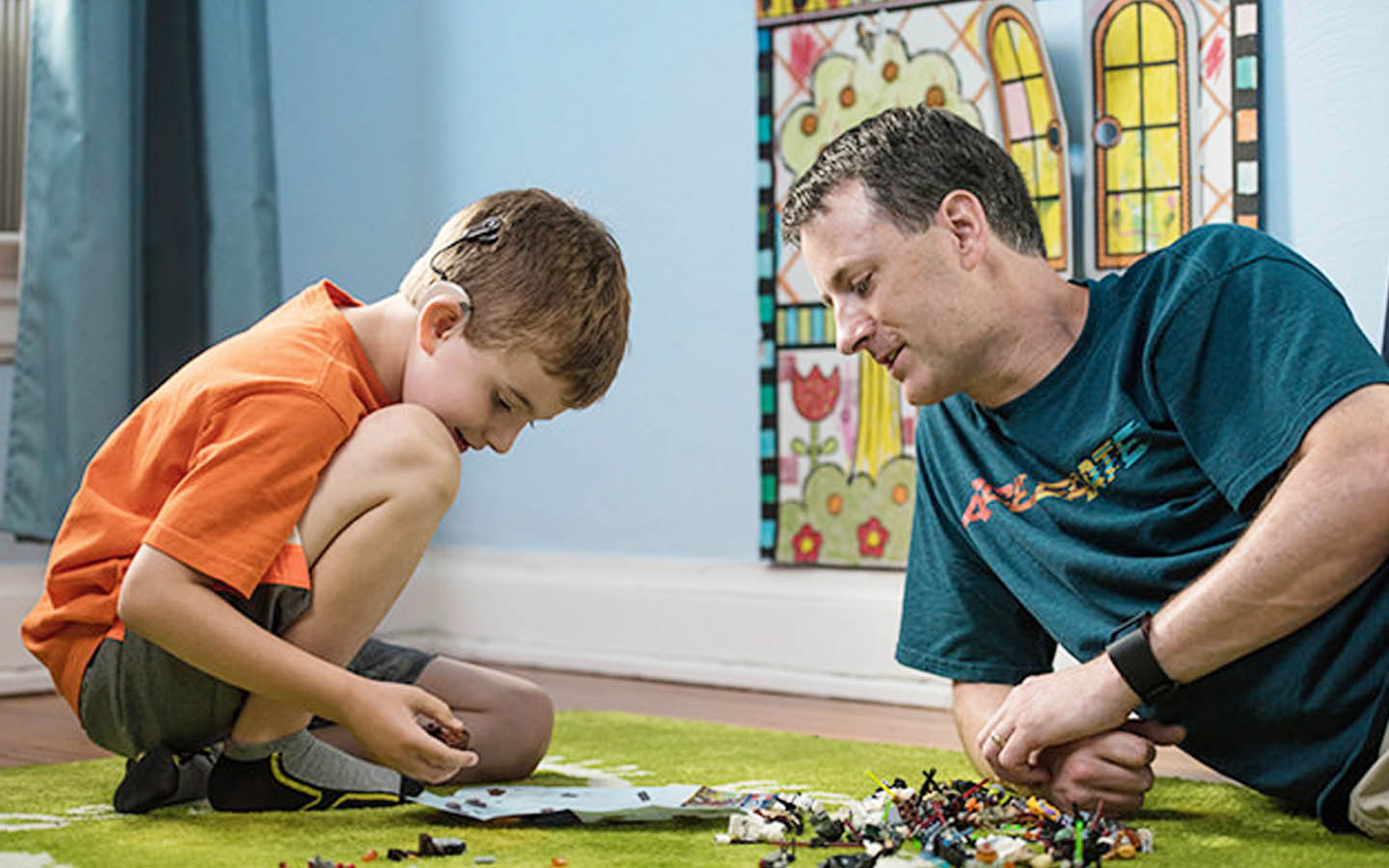Your child's cochlear implant surgery
Any surgery, no matter how simple or short, can be stressful. Learn how to take care of your child and help them on their road to recovery.

What you'll find on this page
- Get tips on how to care for your child after surgery
- Find out what your child can do after surgery
- Connect with other parents who have been where you are now
Preparing yourself and your child
Making the decision to have surgery is always a tough one for parents, especially when children are very young. You worry if the procedure is going well and afterwards if they’re in pain or discomfort, especially when they’re not able to tell you what’s bothering them.
It’s normal to feel anxious, but you can have peace of mind knowing you’re not alone. Cochlear hearing implant procedures have been performed for almost 40 years and Cochlear has provided over 600,000 implantable hearing devices worldwide. Remembering why you made this decision will help you keep focused—to give your child every opportunity to lead a full life.
Understanding what to expect after surgery and how to care for your child will help you manage your own feelings as well as theirs.
After your child’s procedure
After cochlear implant surgery, your child's head will likely be wrapped in a bandage to protect the incision site, and you will be given instructions on how to care for it along with medication prescriptions and possible activity restrictions. Once you take the bandage off, your child may have some swelling around the incision site. After the incision behind the ear heals and swelling disappears, a slightly raised bump may remain where the implant has been placed. Not to worry though, this area is typically covered by hair.
This process will take some patience, but it's important to take the time your child needs to heal, so they can be ready to go on activation day.
How to care for your child after cochlear implant surgery
It will take time for your child to recover from surgery, but it will happen faster than you think. Here are some tips and recommendations to help your child on their road to recovery:
- Follow all your doctor's instructions, including making sure your child takes medication exactly as directed.
- Your child may want to spend the first few days in bed – that’s okay, it’s normal.
- When your child is ready, and your doctor says it is okay, they can begin playing again. Encourage quiet indoor play for the first few days.
- Your child will have a bandage over the incision. You can remove the bandage three days after surgery or when advised by your doctor.
- After you remove the bandage, wash the incision daily with warm, soapy water, and pat dry.
- Follow-up care is a key part of your child's treatment. Make sure you attend all the appointments, and call your doctor if your child is having any problems.
This post-surgery period is a time to rest. With fitting day fast approaching, take this opportunity to help your child anticipate the upcoming visits to the audiologist and speech therapist.
How long does it take to recover?
Your child's surgeon will require a recovery period prior to activation—three to four weeks for cochlear implants. Every child recovers at a different pace, whether they’re only a year old or a teenager. And the care they require will vary as well, depending on their independence and lifestyle. Most children can go back to school or daycare one week after surgery, but it’s best that they do not take part in sports for three to four weeks afterwards. Talk to your doctor about how much activity is safe for your child.
Disclaimer
Please seek advice from your health professional about treatments for hearing loss. Outcomes may vary, and your health professional will advise you about the factors which could affect your outcome. Always read the instructions for use. Not all products are available in all countries. Please contact your local Cochlear representative for product information.
Views expressed are those of the individual. Consult your health professional to determine if you are a candidate for Cochlear technology.
For a full list of Cochlear’s trademarks, please visit our Terms of Use page.






